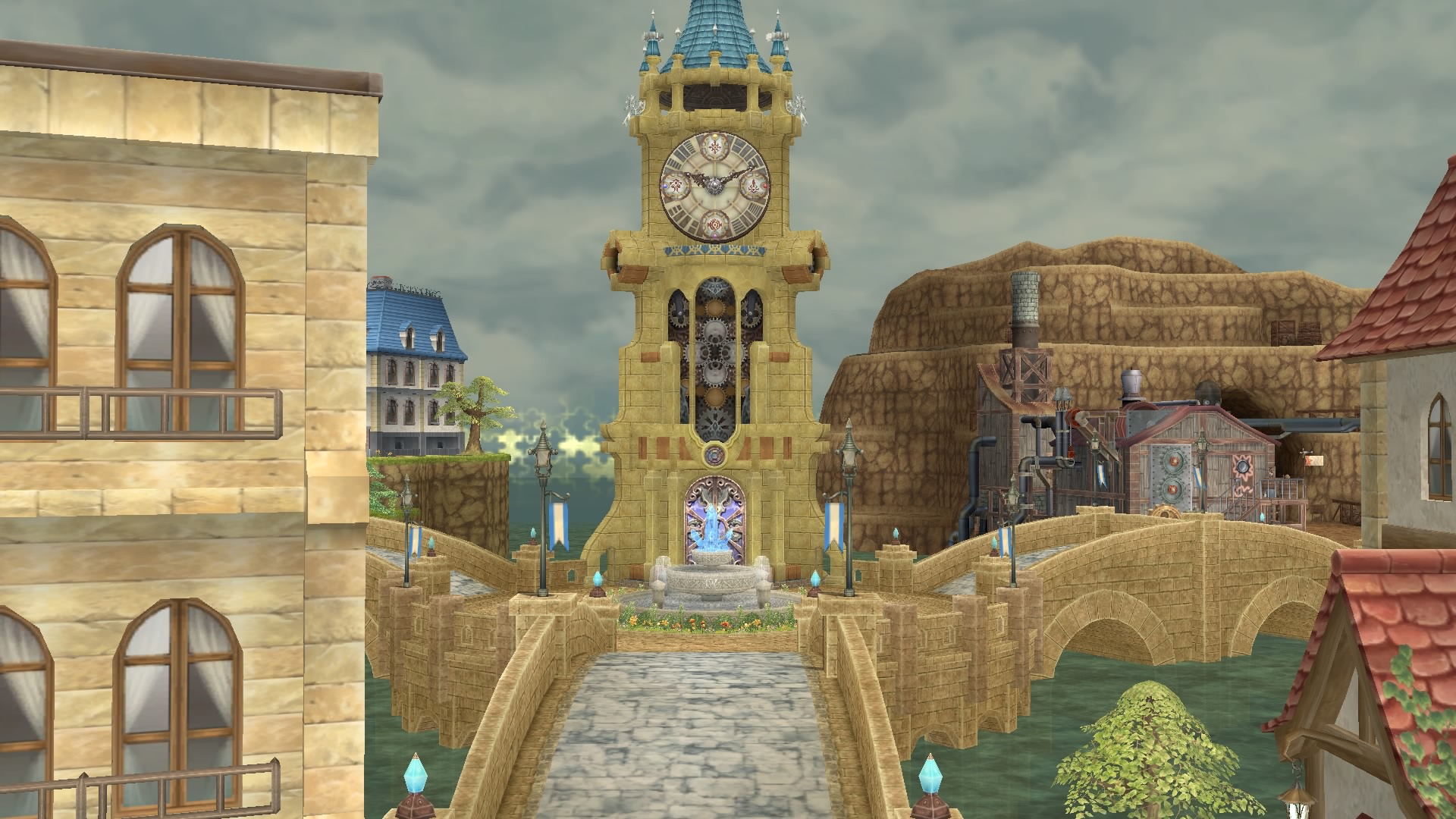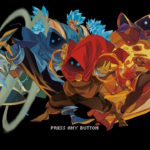I looked at all the RPGs I’ve played this year, trying to pick the one of them all that would be the best of the year. Several stood out, but I couldn’t pick just one. I guess if there were a game that I felt worth spending hours of my life playing, that proved its quality, maybe?
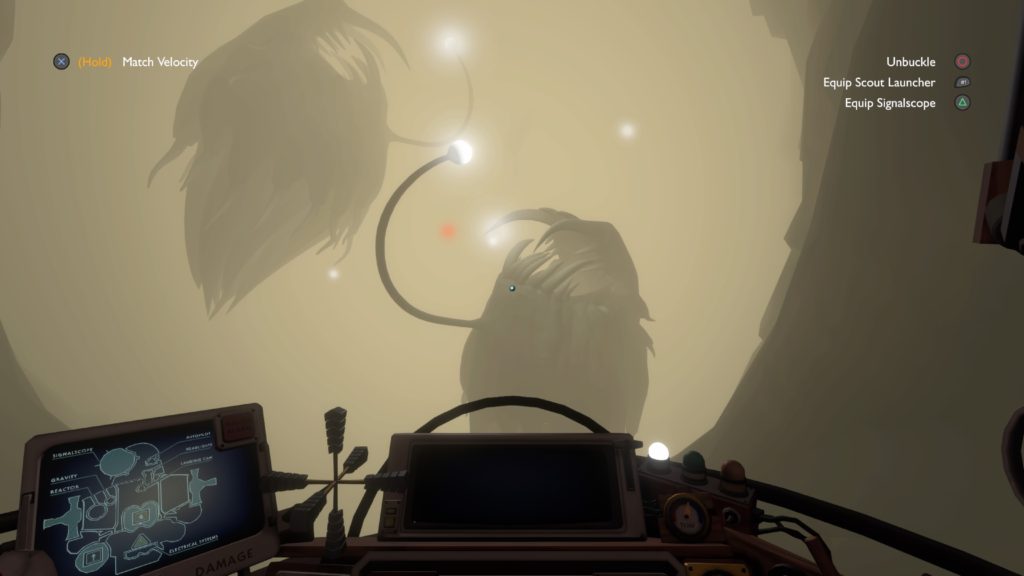
Outer Wilds (PS4; finished January 26)
This indie game about a hapless astronaut who is trying to stop their sun from exploding in (looks at watch) 24 minutes made a huge splash when it came out last year for all the right reasons. The clockwork solar system our astronaut lives in is full of puzzles everywhere you look. The lore is amazing. The physics are on point. And every 24 minutes, the sun explodes and you start from the beginning again, but you still have retained all you learned.
Loop after loop, you learn more about the people of this world, the civilization who came before, and why your sun is exploding, and maybe, just maybe, if you learn enough, you can save it all?
I loved this game until I didn’t. I can’t really explain why without spoiling the game, but that screenshot holds a clue.
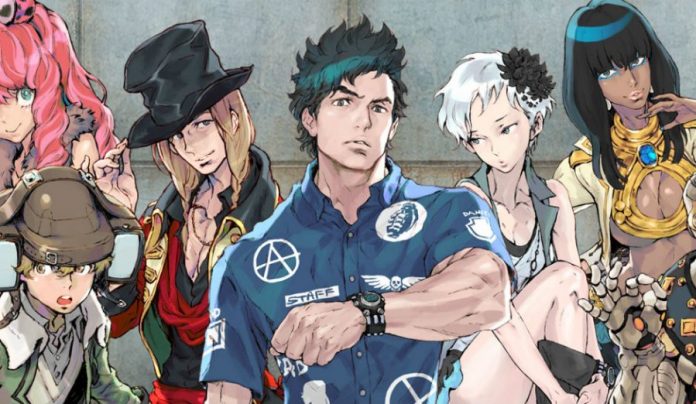
The Nonary Games (PS4; finished February 14) and Zero Time Dilemma (PS4; finished March 7)
The Nonary Games is an omnibus collection of the first two games, Nine Hours, Nine Persons, Nine Doors and Zero Escape: Virtue’s Last Reward. The three games in the loosely connected Zero Escape trilogy tell the same general story; nine people wake up to find themselves trapped in a death game, and they must solve the mystery of their imprisonment guided and harassed by a mysterious individual known only as Zero. The plots switch between visual novel segments and escape room segments. In all three games, there’s bad paths through the game and one true path, which is slowly unlocked as the story unspools.
These games are just plain fun. I really enjoyed trying to figure out the puzzles, not only the escape rooms, but also the real plot, the real villain, who all these people were… it was just good stuff. After the stress of Outer Wilds left me a little shaken, the Zero Escape games just gave me time to relax and enjoy playing games again.
The connections between all three games are subtle and shocking.
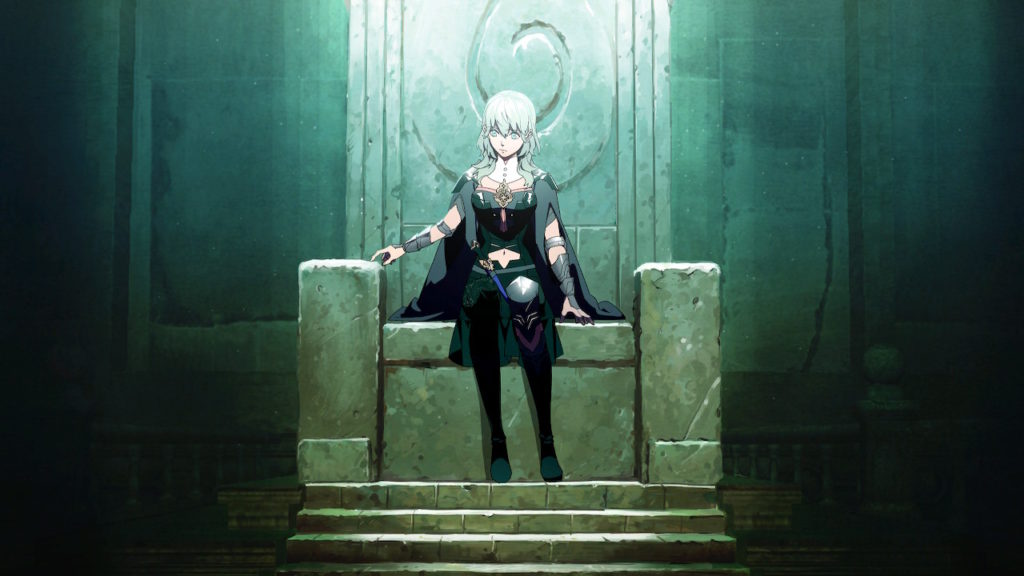
Fire Emblem: Three Houses (Switch; finished March 21)
This is one of the reasons I bought the Nintendo Switch. Fire Emblem: Three Houses brings the long-running tactical strategy game to a neutral school for training military commanders that caters to future leaders from all three of the factions that are working to keep a shaky peace alive.
This combination of visual novel, dating sim, and tactical RPG scratched so many itches at once — this game felt like it was made specifically for me. I loved this game.
This would be an easy pick for my “game of the year”, except for all the games that were yet to come. When I finished this, we had just entered lockdown. We had no idea how long it would last… here at the end of the year, we’re still in lockdown and the pandemic is worse than ever.
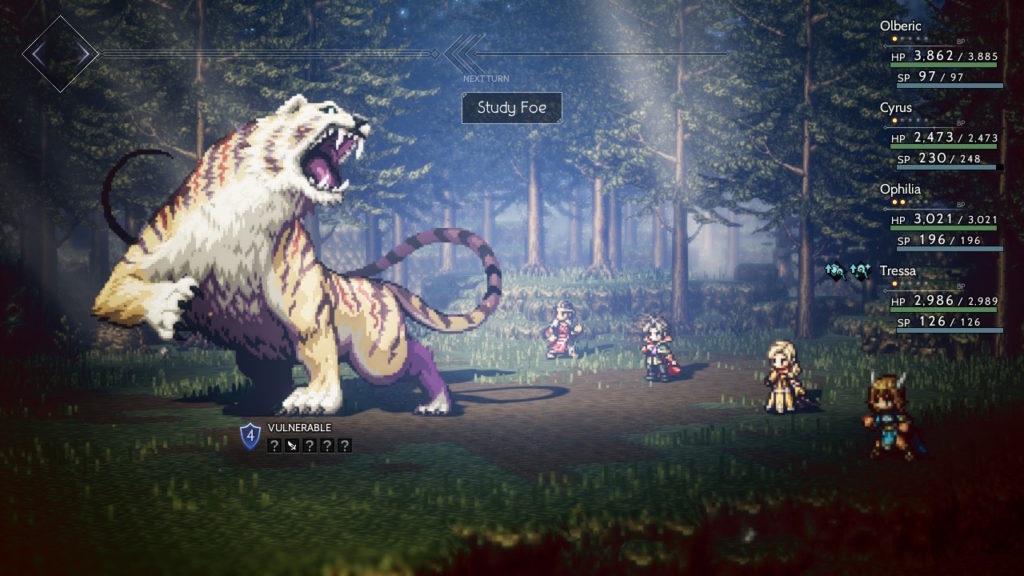
Octopath Traveler (Switch; finished April 29)
Though this throwback to old school Japanese RPGs was available on many platforms, I wanted to play it on the Switch. I loved the ability to play it wherever I happened to be, but also instantly connect it to a monitor when I wanted to seriously dive into a console game. The Nintendo Switch is the perfect “everyday” console. It may not be the most powerful console out there, but it does what it does, really well.
In Octopath Traveler, you switch between the stories of eight characters from very different walks of life. As you unlock each of the eight characters and their individual talents, you learn how these eight characters’ stories are connected, leading to a final confrontation that took me many nights to bear.
The stories are unique; the bosses are incredible; the abilities of the characters range from standard to insane; this is a game that has surprising depths and will keep any JRPG fan happy. It sure made me smile. Especially after I beat the final boss.
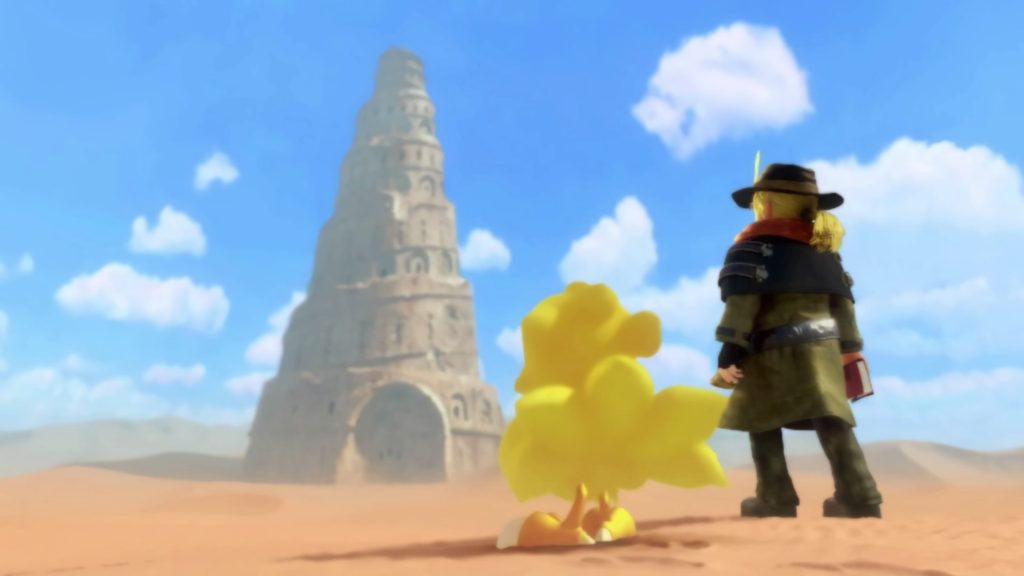
Chocobo’s Mystery Dungeon EVERY BUDDY! (PS4; finished July 8)
It’s a little inaccurate to say I finished this game in July, as I still occasionally play it. But it’s the day I finished the main story.
In this game, you play as longtime Final Fantasy mascot Chocobo, best friend and companion to Cid. Together, you are exploring a mysterious tower that has risen in the middle of the desert — a tower that transports you to the mysterious town of Lostime, a place where the Oblivion Bell erases the memories of all inhabitants each day. Your job is to solve the mystery and restore all the lost memories by making friends in town and recruiting monster companions from the shifting dungeon mazes in which the town’s memories are trapped.
All of the plot is just an excuse to get you playing one of the most engaging “rogue-likes” the genre has to offer. Like other games of this type, each expedition into a dungeon runs differently, with different maps and monsters and items of unknown use. Unlike most other roguelikes, death doesn’t mean the end of the game — just that particular dungeon run.
The game’s real depth (and I mean that literally) opens up when the main plot ends, as the optional dungeons provide grueling exploration for those who want more challenge. Mastering all of Chocobo’s many professions (that run the gamut of Final Fantasy game jobs) and unlocking all of their companions is a game in itself.
A really fun game that can be played for a few minutes here and there or for days. One of the dungeons is literally endless. (Spoiler alert: It actually repeats every 500 levels…)
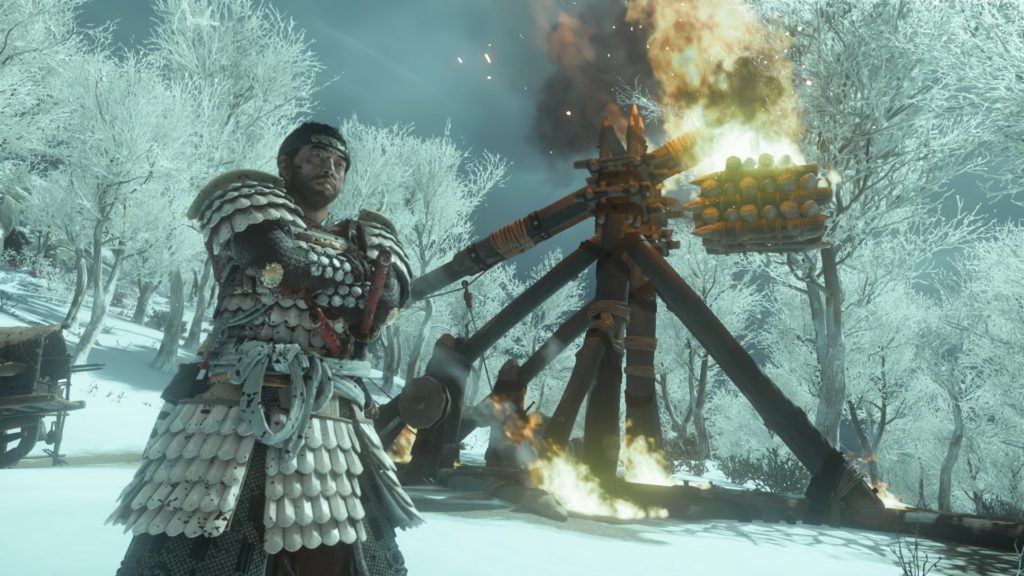
Ghost of Tsushima (PS4; finished July 29)
The first, and arguably best, of what would be several open world RPGs I’d play this year. In Ghost, you play as Jin Sakai, the last samurai left alive after Mongols invade your home, the island of Tsushima, on their way to invade mainland Japan… unless you can stop them here first. But to do so, Sakai will have to leave behind all he knows and become someone new.
This story is loosely based on historical events. Left for dead after the Mongols obliterate the defending samurai (by not fighting by the samurai code!), and nursed back to health by the thief and potential love interest Yuna, Sakai must become a one man army and free his home.
The plot is intense. The landscapes are beautiful. The fighting is fluid and satisfying. And who doesn’t like a good samurai epic? I hadn’t played a game of this sort I liked this much since Red Dead Redemption 2 the year before.
This game is long enough to feel satisfying, but does not outstay its welcome.
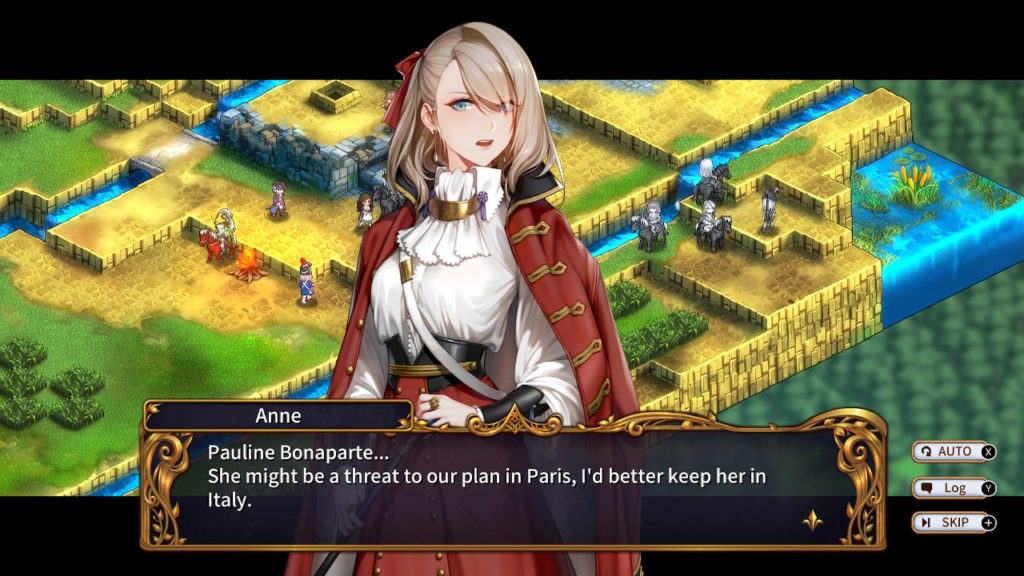
Banner of the Maid (Switch; finished September 20)
What if the French Revolution, but the war was run by teenage girls with mysterious powers? That’s the conceit of Banner of the Maid, a tactical strategy RPG set in the time when Napoleon was freeing France and Italy from the twin fronts with the English and the Austrians. Unable to do everything himself, he calls upon his sister Pauline, a rising star of the country’s military academy, to help keep the lands he has conquered. He would only later come to find out that by choosing to protect her homeland, she has inherited the power of the Maids, a power that comes from the very first Maid of France, Joan of Arc.
Like many Asian tactical RPGs, the game switches between visual novel scenes set largely in a Paris caught in the middle of the revolution, and battle segments. The difficulty is such that most battles take a couple of tries to finish, as knowledge of the enemy and what happens when is important. The battles all share a rock-paper-scissors approach, so a good strategy is necessary for a good result.
The plot of the visual novel portion is bonkers, but in a good way. The characters are all voiced (that’s good!) but in Mandarin (that’s crazy!). There are not many upgrades or choices to be made, making this one of the most straightforward tactical RPGs I’ve played.
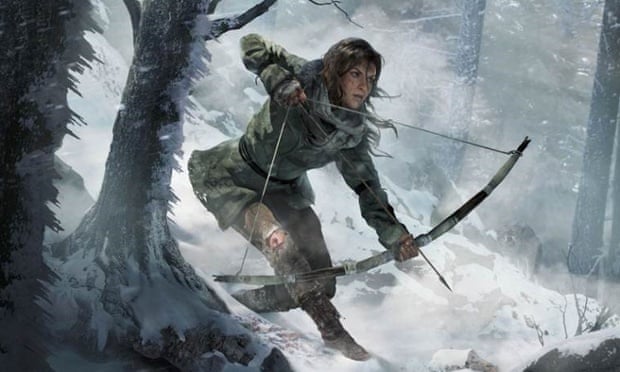
Rise of the Tomb Raider (PS4; finished September 23)
I’d been playing this title alongside Banner of the Maid for awhile; I think it was a free Playstation Plus selection.
This second entry in the rebooted Tomb Raider series has Lara Croft following news of her father around the world. Gameplay switches between overworld stealth sections, and the famous tombs, which are largely environment-based puzzles. A crafting subgame allows you to customize the weapons and gear Lara brings to her journey.
I really don’t have much to say about this. At this stage, the Tomb Raider series is just sleepwalking through the motions, shackled to a formula by its protagonist. Coming so soon, for me, after the similar but much better Ghost of Tsushima, it failed to leave much of an impression.
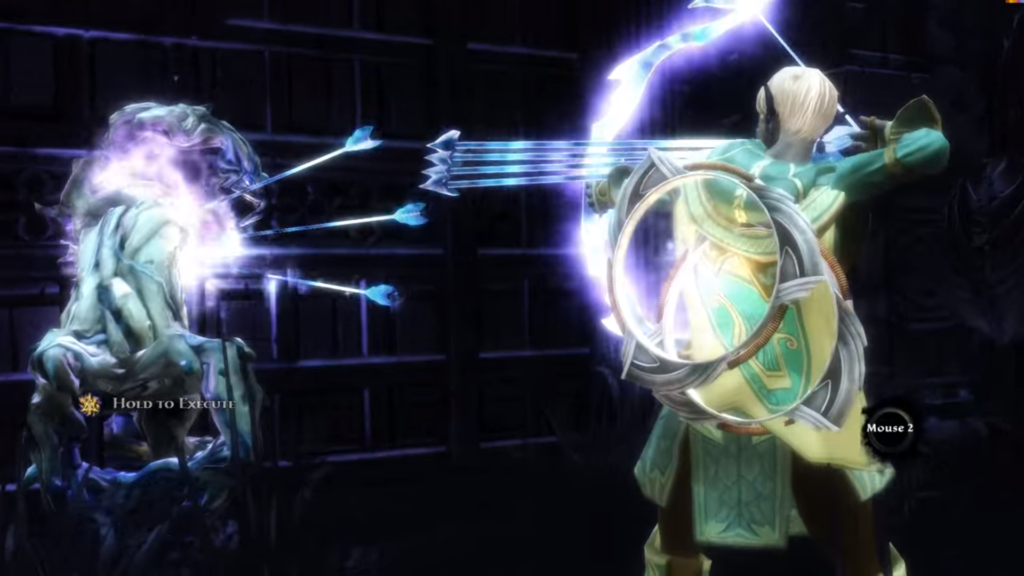
Kingdoms of Amalur: Re-Reckoning (Steam; finished October 3)
The RPG that cost Rhode Island $75,000,000 was relaunched in September in a slightly higher resolution form.
I had played this, back in the day, because I was very excited about the prospects of the mysterious Project Copernicus, a MMO that brought together gaming heavyweights from across the country to work in secret in Providence to birth not only a game that would change gaming forever, but to turn the sleepy capital into a new center of high tech development. Kingdoms of Amalur was to be our first peek into this new world.
And it was… and is… okay. It’s a decent game with a fairly robust skill system with a high degree of customizability. A fairly bog standard early game eventually leads into some fairly amazing battles, but the average player may give up well before the game gets interesting. It’s too easy to build a character that is essentially invincible, and the game falls into the pattern of traveling to a new town, picking up a bunch of standard quests, killing what needs killing, fetching what needs fetching, and moving on to the next.
I hadn’t played the game all the way through when it came out, even though I tried twice. It just wasn’t compelling. I’ve made myself a promise this year to finish the games I start, and so I kept at this one. The final chapter is amazing. It’s just too bad very few players will stay long enough to see it.
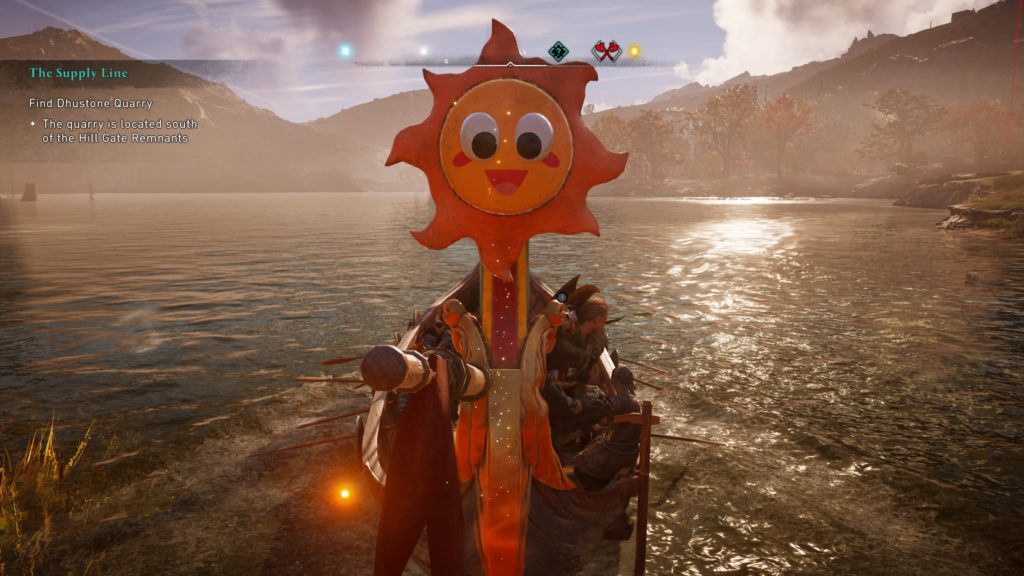
Assassins Creed Valhalla (PS5; finished December 5)
I just finished this game and made a huge writeup which is still on my front page, so I’m not going to get into depth here. I needed a new game to show off my new PlayStation 5, and of all the launch titles, I chose this one. I have no regrets.
I hadn’t played an Assassins Creed game for any length of time before. My previous one was Black Flag, said by many to be the peak of pre-Valhalla Creeds. Since then, the series has become a more standard open world RPG, to such an extent that I was continually reminded of Rise of the Tomb Raider, Ghost of Tsushima and Red Dead Redemption 2.
It’s a sprawling game with more than a few launch bugs which will undoubtedly be cleared up soon. Even though I have finished the main plot and a large number of the optional objectives, I still have quite a lot to do to clear the map. I’m sure I’ll be looking in now and again for a good time to come.
It’s been a long year…
I’ve played a bunch of shorter games as well, some of which were RPGs. Solasta is a game still in active development, or it would have made this list. I played a few puzzle games and quite a lot of MMOs, but you can’t really finish those, either.
I can’t really pick a game of the year, as even though I played a lot of games, many of them weren’t from this year, and I completely missed many MANY games that would undoubtedly show up on other people’s lists. There’s so many games to play, but I only have so much time.
My boyfriend is a gamer, so to this list, I could make another entirely different list of games I’ve watched him play, but that would be more for him to write about (although he also played Fire Emblem: Three Houses).
In a dark year, gaming is a bright spot. I can’t wait to see what 2021 brings.
